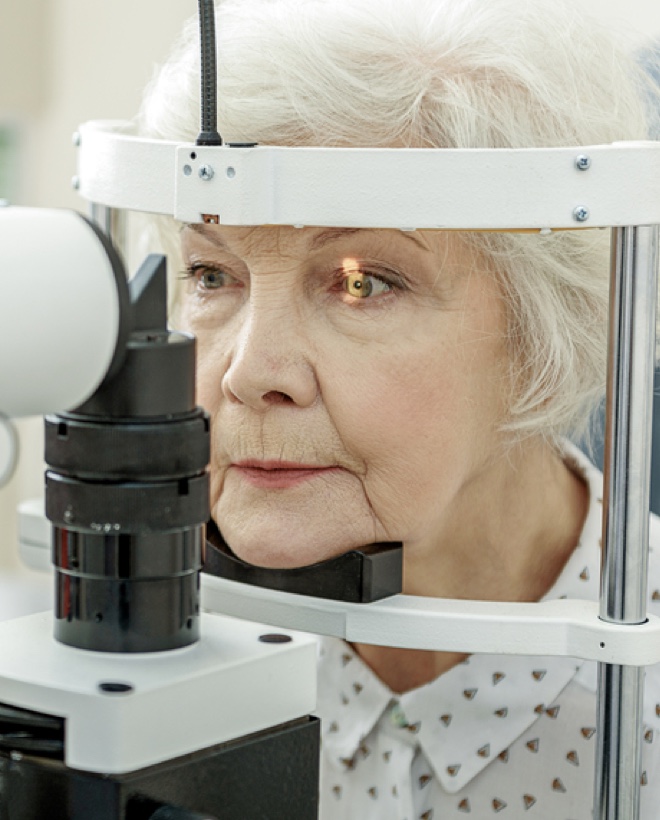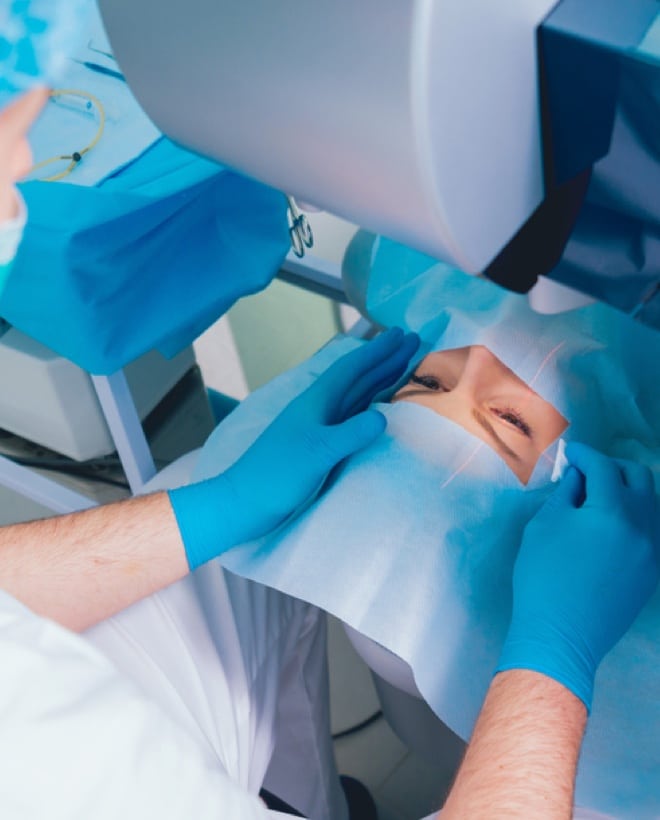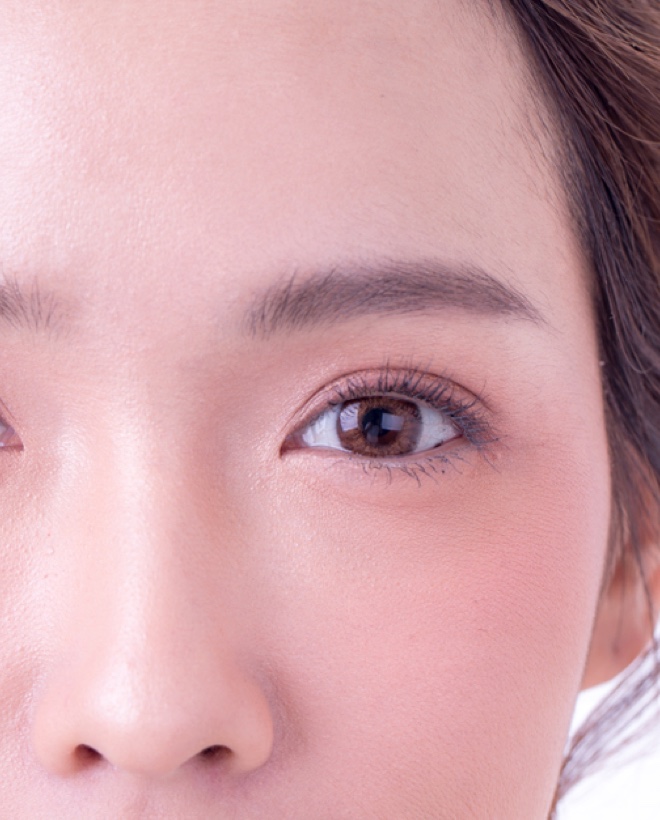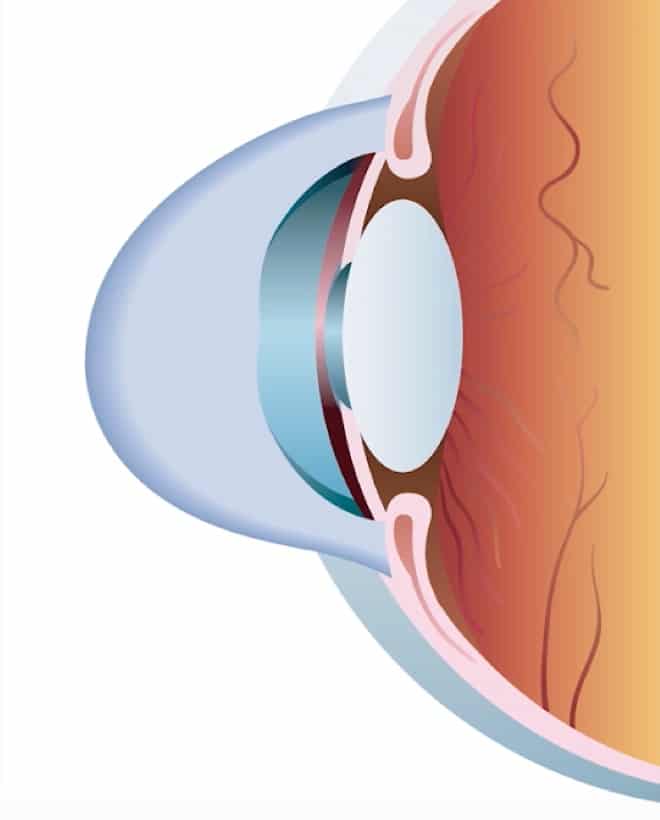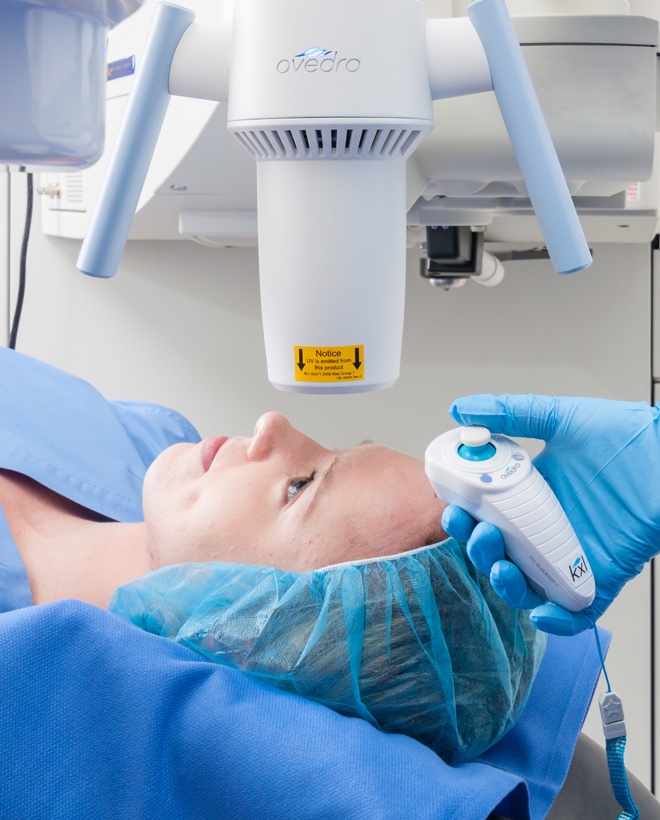Eye Diseases & Treatments
Our eyes are what allows us to see our family, our friends, our work, and our world. So when your eyes start giving you trouble, it’s best to seek out the most professional, quality treatment available.
Eye Center of Texas works to protect your eyesight from any eye diseases that might hinder your ability to see the things that you love. A highly complex organ, the eye has many components that may run awry. Luckily, today’s sophisticated technology makes treatable what were previously debilitating eye diseases.
If you don’t see information on the eye disease you’re researching for here, that doesn’t mean that Eye Center of Texas doesn’t treat it. Give us a call at 713-797-1010 or request an appointment online to receive a more extensive list of eye diseases that the team at Eye Center of Texas can care for.
Learn more
Cornea Surgery
Learn more 
Glaucoma
Learn more 
Keratoconus
Learn more 
Corneal Cross-Linking
Learn more 
Eye Floaters
Learn more 
Corneal eye diseases, conditions, & treatments
Your cornea is the dome-shaped, transparent outer lens of the eye. It protects the iris, anterior chamber, and pupil from debris and germs. It also is the primary focuser of light entering the eye; the cornea bends (refracts) light onto the lens. The cornea can lose its shape, grow cloudy, and suffer from infections. The following are common corneal eye diseases and corneal surgeries treated at the Eye Center of Texas.
- Astigmatism: a condition in which an unevenly rounded cornea creates refractive errors, resulting in vision problems.
- Treatment: LASIK eye surgery.
- Treatment: LASIK eye surgery.
- Corneal abrasion: a frequently occurring condition in which the cornea has been scratched.
- Treatment: either prescription eye drops, lubricating drops, antibiotic drops or ointment, or a bandage contact lens, depending on the severity of the abrasion
- Corneal dystrophy: an (often inherited) condition involving the buildup of cloudy substances that cause the cornea to lose clarity.
- Treatment: Keratoplasty (corneal transplantation)
- Treatment: Keratoplasty (corneal transplantation)
- Corneal neovascularization (CNV): a condition caused by lack of oxygen, in which blood vessels grow into the cornea.
- Treatment: antibiotics, corticosteroids, anti-VEGF medication
- Treatment: antibiotics, corticosteroids, anti-VEGF medication
- Fuchs’ corneal dystrophy: a disease in which the endothelial cells at the base of the cornea deteriorate, creating potential corneal swelling.
- Treatment: Keratoplasty (corneal transplantation)
- Treatment: Keratoplasty (corneal transplantation)
- Keratoconus: a progressive eye disease which causes your cornea to thin, then bulge into a cone-like shape.
- Treatment: Corneal cross-linking (CXL)
- Treatment: Corneal cross-linking (CXL)
- Keratitis: an infection often caused by bacteria or a virus that creates corneal inflammation.
- Treatment: antibacterial, antifungal, antiviral, or antibiotic eye drops
Retinal eye diseases, conditions, & treatments
The retina is the thin layer of tissue that lines the inside of the back of the eye. The retina is the part of the eye which takes all the light collected by the lens, organizes it, and translates it into neural signals that it then sends to the brain via the optic nerve. The following are common retinal eye diseases treated at the Eye Center of Texas.
- Diabetic retinopathy: a condition that occurs when high blood sugar damages the capillaries in the retina, causing vision loss and blindness.
- Treatment: better control of blood sugar, anti-VEGF medication, steroids, laser surgery (to shrink blood vessels), vitrectomy.
- Diabetic macular edema (DME): a condition in which the damaged capillaries of diabetic retinopathy are left on treated, causing pressure and leakage.
- Treatment: better control of blood sugar, anti-VEGF medication, steroids, laser surgery, NSAID eye drops.
- Epiretinal membrane (macular pucker): is a condition where scar tissue has formed on the center of the retina (the macula), blurring vision.
- Treatment: vitrectomy or no treatment, depending on the severity
- Flashes and floaters: flashes are caused by vitreous, which pulls on the retina as it shrinks, creating flickers of light. Floaters often follow flashers and are caused by the vitreous coagulating and detaching from the eyewall.
- Treatment: none, unless related to another disease or condition
- Macular degeneration / age-related macular degeneration (AMD): a condition caused by the degeneration of the macula the pigmented area found at the center of the retina. Macular degeneration contributes to loss of central vision.
- Treatment: laser surgery, anti-VEGF medication, glasses, corrective lenses
- Macular hole: a defect found at the center of the retina caused by an injury or tugging of the vitreous (the gel-like substance in your eye).
- Treatment: vitrectomy
- Retinal tears and retinal detachment: a condition that occurs when vitreous shrinks, tugging and tearing the retina. If fluid enters the tear it can cause the retina to detach.
- Treatment: cryotherapy
- Retinal vein occlusion (RVO): a disease in which the blood traveling from your retina to your heart becomes blocked. RVO is sometimes called eye stroke. There are two types: central retinal vein occlusion (CRVO) and branch retinal vein occlusion (BRVO).
- Treatment: laser surgery/therapy, anti-VEGF, corticosteroids
Other eye diseases, conditions, & treatments
- Cataracts: a degenerative eye disease that typically occurs with aging. Cataracts develop on the lens and cause blurred vision.
- Glaucoma: a condition in which the optic nerve is damaged by increased pressure (ocular hypertension) due to fluid buildup. The onset of glaucoma is slow; many people are unaware that they have glaucoma.
- Treatment: eye drops, laser eye surgery (selective laser trabeculoplasty or endoscopic cyclophotocoagulation), filtration surgery
Our doctors
Dr. Edward Wade and Dr. Mark Mayo are nationally-renowned eye surgeons located right here in the Houston, Texas area. They and their team of doctors operate in five locations throughout Houston and the surrounding areas.
See how our patients describe their time at Eye Center of Texas working with some of the best LASIK surgeons in Houston, Texas.
Treatment at Eye Center of Texas
Eye Center of Texas has helped restore the vision of thousands of Houstonians. Due to our years of experience and our use of only the most advanced eye disease surgical techniques and technology, over 300 Houston-area eye doctors refer their patients to Eye Center of Texas exclusively.
Take that first step towards getting your clear vision back. Contact an Eye Center of Texas facility nearby calling us at 713-797-1010 or requesting an appointment online.
Financing Options Available
Apply today to find a financing option that meets your needs.
Our Locations
Houston/Bellaire
6565 W. Loop S., Suite 650Bellaire, TX 77401
Medical Office:
713-797-1010
Medical Fax:
713-357-7276
LASIK/Near Vision:
Office: 713-395-1515
Fax: 713-357-7278
Pasadena
4415 Crenshaw RoadPasadena, TX 77504
Medical Office:
281-977-8800
Medical Fax:
281-977-8877
Sugar Land
15200 S.W. Freeway, Suite 130Sugar Land, TX 77478
Medical Office:
281-277-1010
Medical Fax:
281-277-4504
Clear Lake
455 E. Medical Center Blvd., Suite 110Webster, TX 77598
Medical Office:
281-332-1397
Medical Fax:
281-282-9152
Katy
Greenhouse Medical Plaza2051 Greenhouse Road, Suite 110
Houston, TX 77084
Medical Office:
346-547-7070
Medical Fax:
281-214-2971
The Woodlands/Conroe
100 Medical Center Blvd., Suite 118Conroe, TX 77304
Medical Office:
936-647-1610
Medical Fax:
936-647-1620
